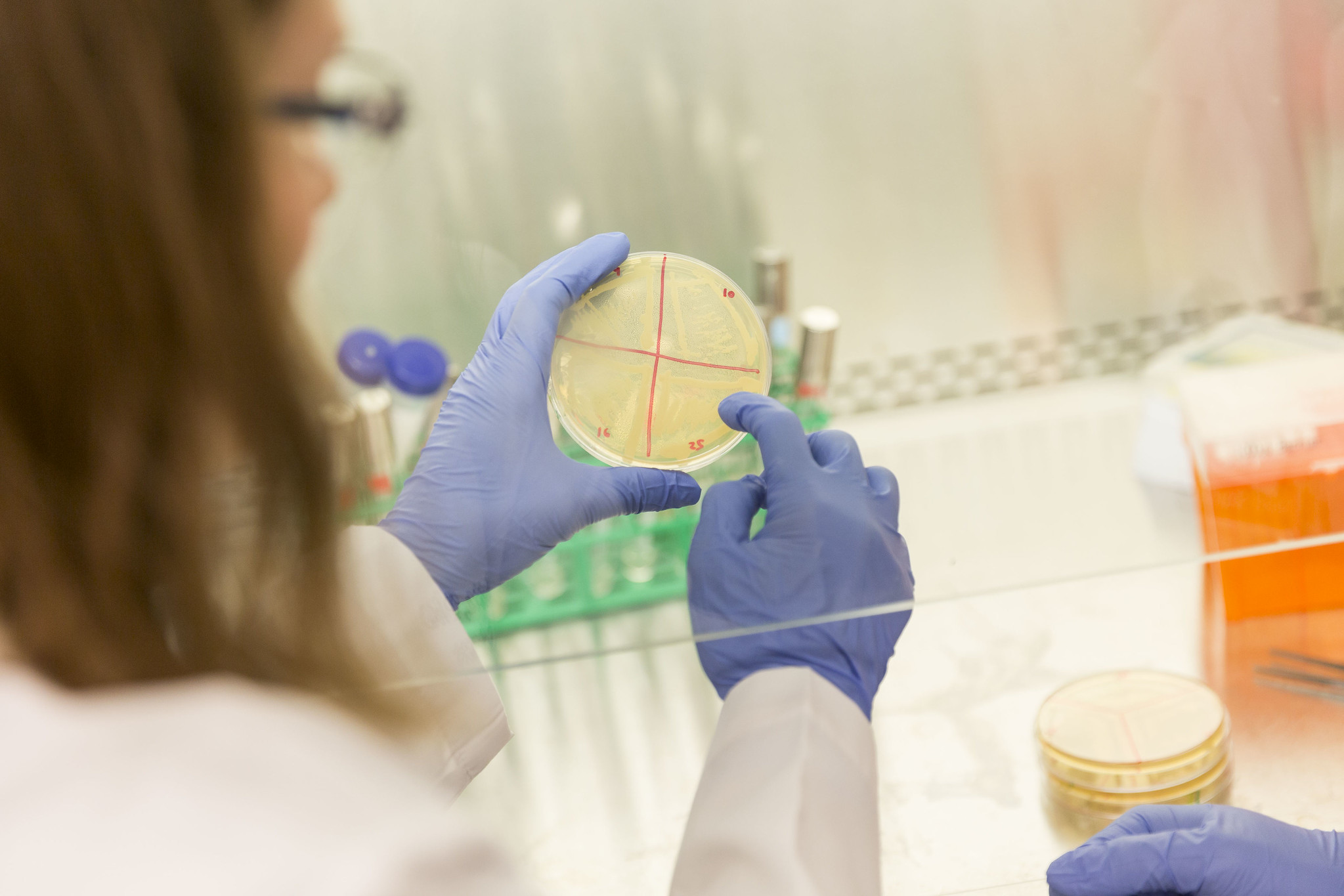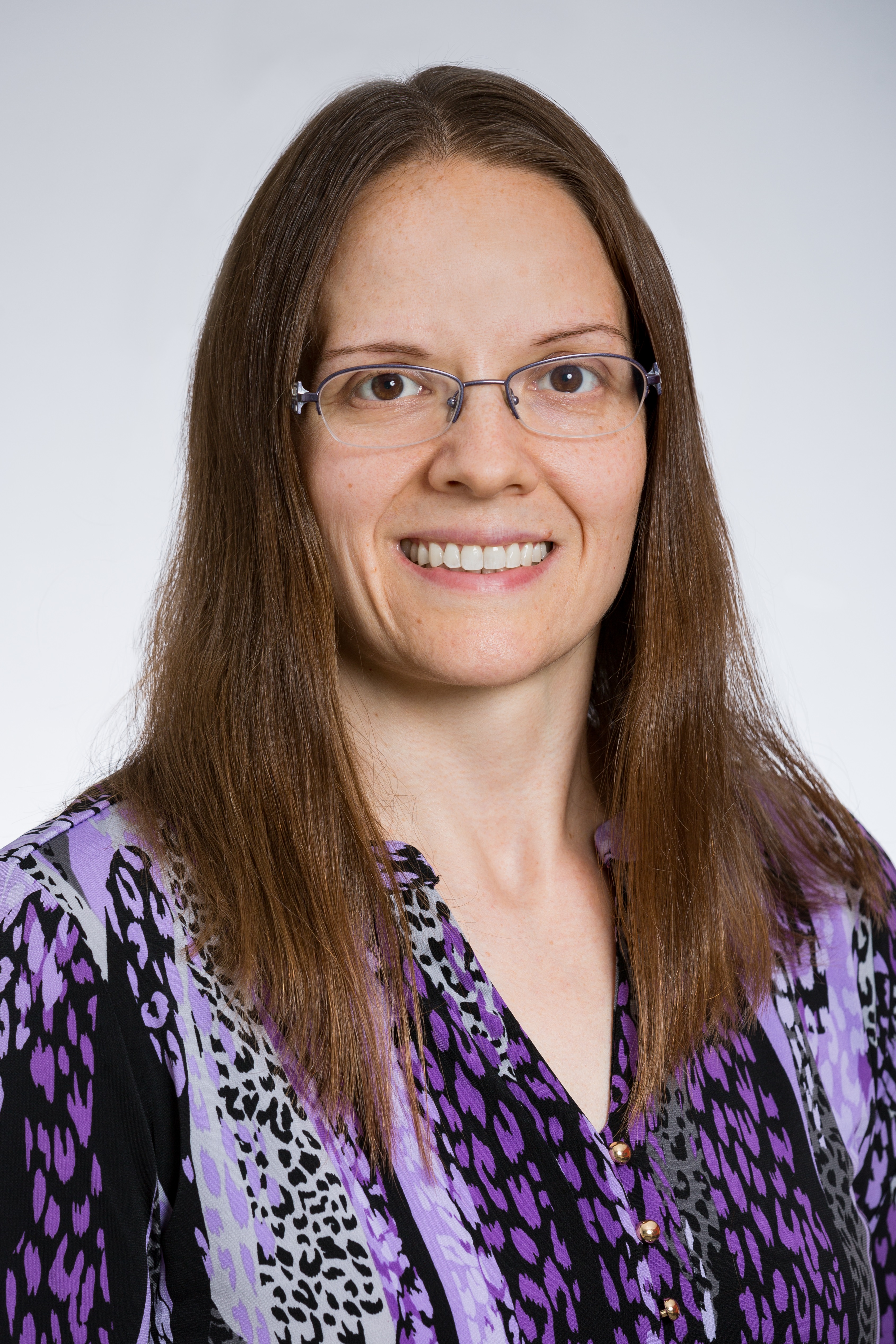Rowan researcher targets antibiotic resistance
Rowan researcher targets antibiotic resistance

News headlines often warn of the growing threat of “superbugs” and antibiotic-resistant infections. It’s with good reason. The Centers for Disease Control and Prevention reports that every year 2.8 million or more Americans develop antibiotic-resistant infections, leading to death in more than 35,000 cases.
To target this looming problem, a Rowan researcher recently landed a $1.8 million grant to fund research that may lead to new solutions.
“Bacteria rapidly evolve and can become resistant to new drugs. Problematically, they can start gaining resistance to more than one drug,” said Valerie Carabetta, Ph.D., assistant professor of biomedical sciences at Cooper Medical School of Rowan University, who received a Maximizing Investigators’ Research Award from the National Institute of General Medical Sciences. “In some cases, there have been reports of pan-drug-resistant strains, meaning that the bacteria are resistant to every antibiotic we have.”
“If we sit back and allow this trend to continue, these bacteria will keep evolving, superbugs will continue to emerge and we will quickly return to the pre-antibiotic era, where our entire antibiotic arsenal would be useless,” Carabetta said.
Researchers face numerous challenges in this battle.
“Generating new drugs is slow, and there isn’t enough research effort dedicated to tackling this problem. Meanwhile, our antibiotic arsenal is becoming more outdated,” Carabetta explained. “We need to identify new, exciting and promising drug targets to create drugs with different mechanisms of action that bacteria haven’t seen before. These newly designed drugs could act alone or work in combination with other existing drugs. Each option would give us new ways to treat infections—especially multidrug-resistant infections.”
Carabetta is working to understand protein acetylation in bacteria and the underlying mechanisms that control it. This process, which was discovered in human cells in the 1960s, modifies proteins and potentially alters their structure, function or stability. During the last decade, it was discovered that this modification is widespread in many different bacterial species and occurs on many important proteins, including those that are essential for the bacteria’s viability.
Carabetta identified and characterized this modification on a histone-like protein, which is important for organizing and maintaining the bacterial chromosome, where the genetic information is stored. Gram-positive bacteria such as Bacillus anthracis and Staphylococcus aureus depend on this protein to survive.
Carabetta is working to determine what these modifications do in bacteria, whether they alter gene expression or affect other processes as they do in human cells.
“If we can identify some novel enzymes involved in regulating or controlling these processes, can we use this information to design a new class of antibiotics? We can imagine that a new drug might inhibit an enzyme involved in acetylation regulation or may actually bind to the histone-like proteins and interfere with their function, which would lead to the bacteria’s ultimate death,” Carabetta said.
This work is urgent as antibiotic-resistant bacteria rapidly take hold.
“We’re not going to have antibiotics that work anymore,” Carabetta said. “There are already patients in hospitals who have untreatable infections. For these reasons, an important goal of my research is to discover if drugs that target acetylation can be used to treat problematic bacterial infections.”
A partnership between Rowan University and The Cooper Health System, Cooper Medical School of Rowan University opened in summer 2012 in Camden. It was the first new medical school in New Jersey in more than 35 years and the only four-year, M.D. degree-granting medical school in southern New Jersey.
CMSRU is a mission-driven school focused on developing highly skilled and socially conscious physician leaders who value a patient-centered team approach to health care. Its innovative curriculum centers on small-group, self-directed learning and early and continuous patient care experiences. More than 600 clinical and biomedical science faculty, including experienced medical educators and prolific scientific researchers, teach the school’s approximately 400 medical students.